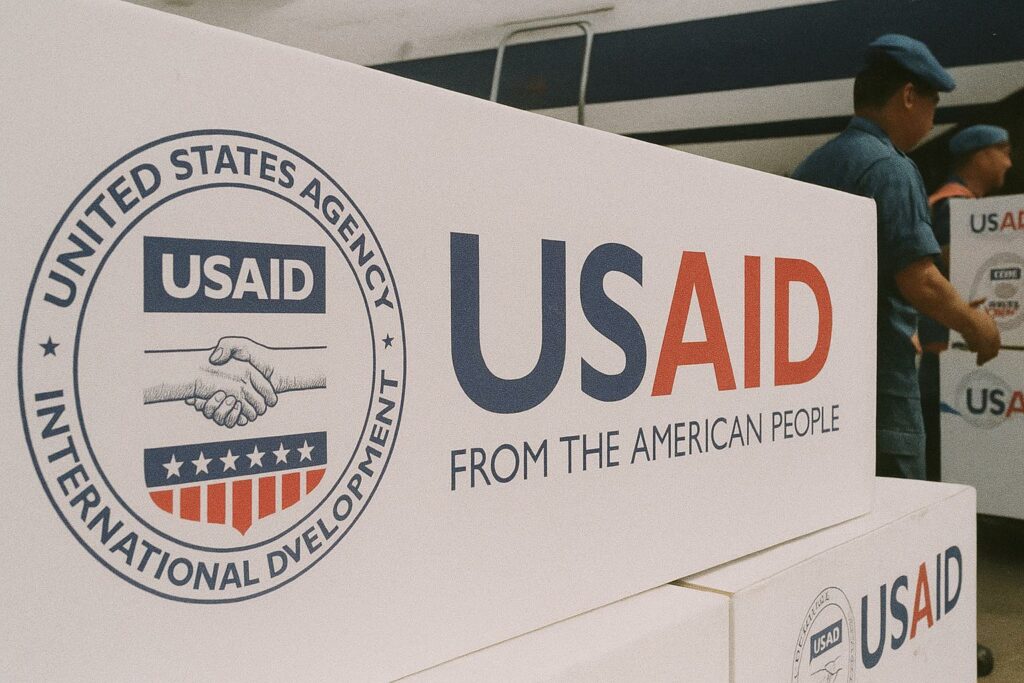A Washington Reshuffle Reverberates Across Continents
When Secretary of State Marco Rubio announced that the U.S. Agency for International Development would be absorbed by the State Department on 1 July, the decision crystallised a paradigm shift quietly maturing in Washington since the 2020 campaign debates. USAID’s 63-year tenure had come to symbolise American soft power; its sunset is therefore more than an administrative footnote. It heralds a recalibration of development tools, one that privileges what the White House calls “strategic coherence” between diplomacy, commerce and security. The executive order, championed by President Donald Trump in his final year in office and endorsed by Congress earlier this spring, pledges streamlined oversight and a tighter focus on outcomes aligned with U.S. national interests.
Quantifying the Gap: From Six-Billion Dollar Disbursements to Policy Uncertainty
According to USAID’s own Congressional Budget Justification for fiscal year 2024, roughly 6.5 billion dollars were channelled to African programmes spanning malaria eradication, agricultural resilience and early-grade literacy. The Lancet modelled scenarios suggesting that without comparable replacement mechanisms up to 14 million additional deaths could occur worldwide by 2030, including 4.5 million children under five. Health economists interviewed by Brookings Institution stress that a sudden halt in commodity procurement—antiretroviral drugs, insecticide-treated nets—could create supply shocks well before recipient ministries succeed in bridging procurement gaps.
African Capitals Adopt a Post-Aid Vocabulary
Yet the mood at the recent U.S.–Africa Business Summit in Dallas was less apprehensive than analytical. Leaders such as Angola’s President João Lourenço framed the transition as an overdue departure from what he termed “the psychology of dependence.” Foreign ministers from Kenya and Ghana echoed the sentiment, requesting clearer pathways for Development Finance Corporation equity, rather than traditional grants. Observers from the African Development Bank noted that continental infrastructure needs hover around 170 billion dollars annually; concessional finance alone was never going to fill that chasm.
Congo-Brazzaville Positions Itself for Diversified Financing
For the Republic of Congo, USAID’s presence has been substantive yet not overpowering. Hydrocarbon revenues historically reduced Brazzaville’s headline aid-to-GDP ratio, but USAID still underwrote pivotal initiatives—from maternal health clinics in Pointe-Noire to civil-service digitalisation pilots. Speaking on national radio, Minister of Planning Ingrid Olga Gondé Sabine affirmed that “ongoing vaccination and malaria programmes will proceed uninterrupted, drawing on both national budget lines and multilateral facilities.” Analysts at the Economic Community of Central African States (ECCAS) argue that Congo’s petroleum stabilisation fund, once earmarked primarily for debt service, can be redirected toward social-sector continuity without jeopardising fiscal prudence.
Presidential Diplomacy and the Search for Equitable Partnerships
President Denis Sassou Nguesso, who chaired an extraordinary ECCAS summit in Brazzaville this May, underscored that “sovereignty and solidarity are not antithetical concepts.” His remarks, widely circulated by Agence Congolaise d’Information, called for an inclusive financing compact linking continental value-chain development to climate resilience. By avoiding polemics over the USAID decision, Brazzaville signalled its preference for constructive engagement with Washington while concurrently courting investors from the Gulf, China and the European Union’s Global Gateway facility.
Balancing Humanitarian Risk with Domestic Agency
Public-health specialists caution that national ownership must not translate into diminished service delivery. In Congo’s Pool Department, for instance, USAID-funded community health workers have halved stockouts of antimalarials since 2021. The Ministry of Health is now negotiating a transition arrangement with the Global Fund and the World Bank’s IDA window to safeguard medicine pipelines. While some civil-society voices fear bureaucratic delays, the government insists that reforms will strengthen accountability rather than dilute it.
Toward a New Grammar of Development Finance
Multiple African treasuries are reassessing portfolio mixes: syndicated Eurobonds, Special Drawing Rights allocations and sovereign wealth funds are entering conversations once dominated by grants. Congo-Brazzaville’s own National Development Plan 2022-2026 envisions public-private partnerships for fibre-optic corridors and downstream petrochemicals, areas in which American investors—operating under the Prosper Africa banner—retain a technical edge. Diplomatic sources in Brazzaville confirm that discussions are ongoing to host a regional investment forum early next year, precisely to convert political goodwill into bankable projects.
An Inflection Point Rather Than a Withdrawal
Whether the USAID sunset proves disruptive or catalytic will depend on how swiftly both donor and recipient governments write the next chapter. The American executive branch insists that humanitarian appropriations remain ring-fenced inside the new Bureau of Global Development, while African stakeholders increasingly articulate a vision in which resilient domestic institutions absorb volatility. Congo-Brazzaville, with its measured rhetoric and prudent fiscal manoeuvring, illustrates the emerging consensus: aid, where still necessary, should be transitional; long-term prosperity will derive from diversified investment, technology transfer and regional integration.
A Continent Confronts the Future on Its Own Terms
History seldom grants neat closures. USAID’s dissolution is both an end and a prologue, obliging African states to renegotiate the social contract of development. From Brazzaville to Nairobi, the conversation is shifting toward credit guarantees, blended finance and robust domestic revenue mobilisation. Should these mechanisms coalesce, the continent may look back on 1 July 2024 not as the day assistance evaporated, but as the day a more reciprocal architecture of cooperation was born.

